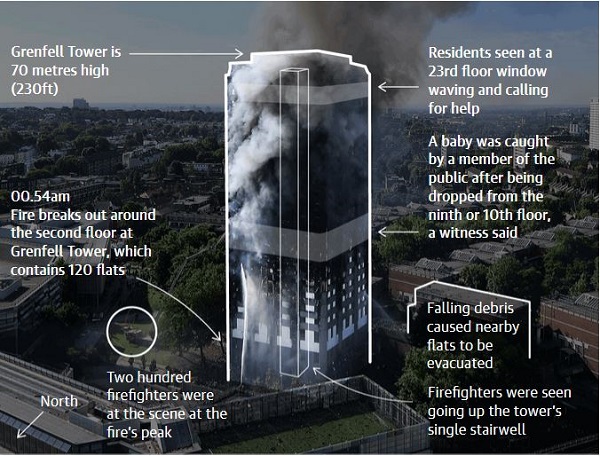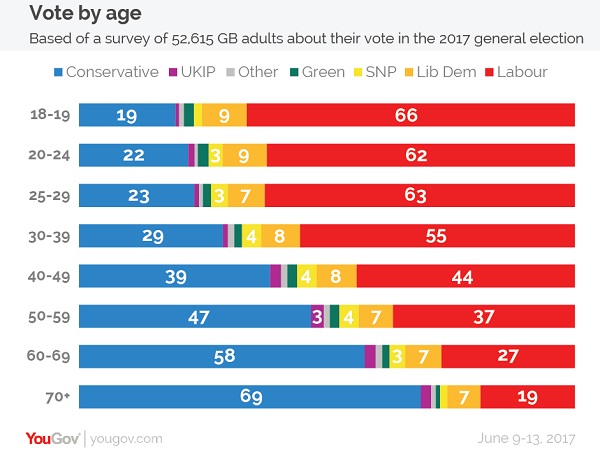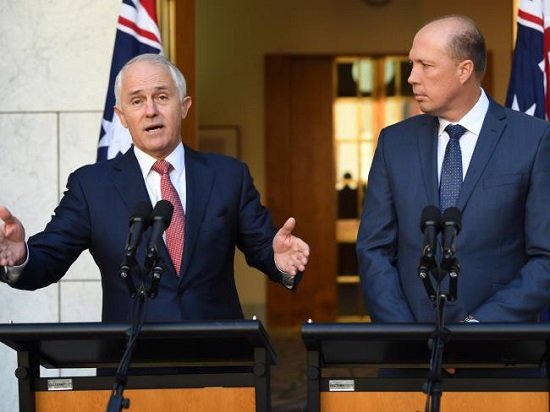1. Towering inferno
A shocker this week was the fire that destroyed the Grenfell Tower in London, a 24-storey building with 120 apartments. The latest count is 30 dead, but the final toll could be much higher as people were incinerated, many difficult or impossible to identify.
Unfortunately people were told to stay in their units, until it became apparent that the fire was spreading up the cladding on the outside of the building – then it was too late for many.

While there is more to what went wrong than the cladding, it seems the stuff is everywhere, including in Australia where it was implicated in the 2014 Docklands fire.
I heard on the radio that after Docklands 170 Melbourne buildings were audited, and 51% were covered with the wrong stuff. Yet somehow only in a few cases was it deemed necessary to undertake remedial action. Apparently thousands of buildings in Australia may not conform to safety regulations.
I have two questions. Who are the f*ckers who are making and selling this stuff? Apparently the good stuff and the bad stuff are indistinguishable to the naked eye, and it’s claimed the fire-proof version would have only added £5,000 to £8.6m Grenfell refurb.
And what is the use of having world-class regulations if they are not policed?
Laura B Alvarez, Architectural Technologist and Urban Designer, Nottingham Trent University goes into the nuts and bolts, and it’s not simple.
Basically, though, a fire escape well should provide safe exit for a couple of hours, and I don’t care how fashionable the cladding looks, we shouldn’t be putting combustible material on the outer skin of buildings.
2. How Britain voted
YouGov has demographic analysis in how the Brits voted in the election. Here is the analysis by age:

Apparently the crossover point from Labour to Conservative was age 47. However, with an encouraging turnout of young voters, voter turnout still increased with age. Only 57% of 18-19 year olds voted compared to 84% for 70+.
Conservative voters were distinctly less well-educated on average.
3. Ministers in contempt of court?
Greg Hunt, Alan Tudge and Michael Sukkar have been called to show reason why they should not be found in contempt of court by the Victorian Court of Appeal for their comments to The Australian.
Lorraine Finlay and Joshua Forrester explain.
They suggest:
-
Scandalising the court is a contempt that should only be applied in exceptional cases. Anything less than this results in the judiciary being perceived as effectively exempted from criticism, which itself runs the risk of undermining public confidence in the justice system.
To me the following statements seem pretty silly:
- Labor’s continued appointment of hard-left activist judges has come back to bite Victorians.
And courts:
- … should not be places for ideological experiments in the face of global and local threats from Islamic extremism.
They withdrew their remarks, but refused to apologise, presumably to claim that they were only doing their jobs.
The court didn’t sound impressed, and if the matter is pursued it could leave the Turnbull government a bit short of troops.
I think the puerility of their criticisms brings its own reward in public contempt.
4. New citizenship legislation
New citizenship laws are being introduced to parliament. Seems new Australians must be upstanding, espouse good Australian values, be able to speak English roughly to university entrance standard, wait four years, and not incur the displeasure of the minister for immigration, who will have sweeping powers to overrule any court of tribunal.

Labor has labelled the English language test as a “bizarre concept”.
Back in April Henry Sherrell took a closer look, and found that the test would lead to a new class of migrants – never-to-be-citizens. After their allotted 500 hours of language instruction, the number who would pass is zero, zip.
5. Laurie Oakes is a pompous git
Laurie Oakes was not at the famous charity ball, not being a fun sort of a bloke, but decided it was in the public interest to publish Malcolm Turnbull’s funny speech. In his column today he is lecturing everyone, saying news is news, and it’s hypocritical in the extreme of the press gallery to think they can run an off-the-record event with politicians. Somehow brings the whole press gang into disrepute, he says.
He points out that there have been plenty of leaks before, including Paul Keating’s Placido Domingo speech, which was also leaked by someone who wasn’t there, enraging Bob Hawke to the point he reneged on his agreement to hand over to Keating.
On the same page in the CM Dennis Atkins points out that for 10 years after the Placido Domingo speech all the speeches were dull and boring.


Phillip Coorey reckons the way around the charity ball leaking thing is to make them on the record. a lot of humour consists of comedians mocking themselves. he points out that George Dubya Bush under similar circumstances made fun of himself for believing that there were weapons of mass destruction in Iraq, and Obama was also extremely funny.
Trump OTOH refused to go. It has been pointed out that The Donald actually has no sense of humour, deals mainly in insults.
“… for 10 years after the Placido Domingo speech all the speeches were dull and boring.”
Laurie Oaks has a ponderous style about him I find. I watch/ listen to him periodically. Coincidentally it’s often about the same time I find sleep irresistible.
Speeches now are more crafted by specialist writers whose task is to present the most innocuous version of events or policy. Plain truth is not compulsory. The result is that we discount speeches and view them as untrustworthy.
I suspect that the immediacy of media these days plays a role here. A politician can make a speech and within minutes a response can be issued by someone with an opposing view. This is especially true if the speech is flawed and the opponent pounces upon it, often with an impact that demolishes whatever merit may have been in the speech.
In the “olden days” we had to wait for a newspaper or a newsreel to see what was going on and I think there was time for a leveling of comment via a timely review of the story. Now it’s all a quick grab – no wonder journalists are in peril, they don’t have time to do their job.
I’m pretty sure the most used ( 100% in my experience ) cladding used in Australia is AlucoBond which passes flammability standards of the highest order.
That’s not to say some dodgy stuff hasn’t snuck in but Architects are generally very anal about using the products they specify.
There are architects, building designers, project managers, builders, building certifiers, Councils, States, the Federal government, contractors, suppliers and owners. All of them contribute to a building if they are part of the particular project.
As Brian said, it is not simple. Architects are insistent about their design being followed but usually only if they are also supervising the work.
There are masses of rules and regulations covering buildings but in my view the most important one is the federal provisions under the trade Practices Act (I think) that says effectively that what is supplied (not just in building) must be safe and not cause harm to people.
Looking at Grenfell, the cladding looked like it was a sandwich of aluminium (?) on the outside, foam inside and probably aluminium on the wall side. That would be a good, lightweight insulative cover and could be made to look attractive. But foam can be very flammable. I don’t know what grade was used in this case but if anyone is interested see: http://www.scaletree.com/foamsafety.html
If the wrong foam was used (‘looks like it was) then there will be consequences for the person(s) responsible.
I can’t believe that architects are designing the masses of apartment blocks currently flooding the market. They look as though (sorry, John D) they were designed by engineers.
Brian I think that is the economic squeeze at work there.
Developers want the most saleable units from their land at the expense of design. And good architectural design is more expensive to build.
Councils are keen to encourage any development these days and are rewarded by greater rate revenues.
And a H/T to all the Engineers, Tradesmen and Suppliers too.
From Client to Cleaner and everyone in between.
Some Councils concentrate more on energy ratings and green products and neglect safety.
All deviations from the Spec are authorised by Architects or it’s a breach of contract.
No ifs or buts.
Some councils Jumpy? Name one or more and give an example where safety is willfully compromised.
All deviations…that is entirely a matter for each contract, not a blanket rule. In any event many buildings are not architect supervised. It is likely that in a Grenfell building there is/was an architect but across Australia most building does not have the advantage of architectural supervision because it is a costly process.
Ok, mine.
Our Council mandated the removal of water tanks in residential areas due the Dengue panic. ( we’re doomed! )
Then latter mandated the inclusion of water tank on new building due to the Flannery drought panic. ( we’re doomed! )
Now no such mandates apply, go figure….
Leaves me wondering Jumpy… did you vote for that Council?
You must understand, one only seeks a job for Council when all other options are exhausted.
No cream of the crop there.
It was 3 different Councils.
Did I answer you question ?
Nope
Brian
I thought the UK voting age was at least 18 years old.
At any rate, I would assume the older one is the more motivate to vote and have more wisdom despite level of formal education is about right.
Geoff
Oh.
You see we vote for our preferred Councillors and our preferred Mayor, I’ve never gotten my way 100% in any Council election.
If you’re asking to what % I was successful in 3 different elections I sorry but I haven’t quantified them.
But on the safety issue did my example stack up as a ” Safety compromised ” example where safety is the latest panic porn from the media and not common sense ?
Not a sound example there Jumpy, that’s a small local laws thing.
I was hoping for a real-life building example where safety was compromised
“Crossover age 17” looks like a typo, Mr J.
I’m guessing age 47.
That’s all Councils have authority on.
How about mandating that I have to fence bodies of water on property that I’m responsible for but they don’t ?
That’s a wide spread issue.
Yep, a typo. Crossover age was 47. fixed now, thanks.
In Upper Brookfield, which is a Brisbane suburb, there is no town water supply and many properties have dams.
They have to fence their swimming pools but not their dams.
Brian
You may want to fix that too.
I’m sure 10-19 year olds didn’t vote by that magnitude.
Seems a tad strange that bodies of water designed to be swum in safely need to be fenced but others don’t.
I suppose the fine revenue recoups some of the enforcement cost.
Jumpy, it’s not a tad strange, it’s a tad ridiculous.
And I’ve never heard of anyone being fined, just threats.
Yes, 18/19 year olds. Don’t know what happened there, I did that item first when i wasn’t even tired!
Agreed, ridiculous double standard.
Perhaps if we had to fence dams the we would need to fence creeks and rivers too “for our protection”. Then the government would need to follow on and fence off its risk areas. That would then deny the creatures access to water and send us broke. Yep, ridiculous.
Josh Bornstein thinks the three ministers show an astonishing ignorance of the separation of powers.
In addition:
As you’d expect, Peter Dutton had a go too.
SBS reckon the government is worried that the contempt case might bring the government down.
The ministers would only be unable to continue in an elected capacity if they are convicted and sentenced for a year or more.
Seems to me the court wouldn’t do this. The max would be a suspended sentence of some months on good behaviour.
Our elected officials are supposedly there to voice the concerns of their constituents and the performance of Judges is certainly a concern in the community about the consequences of their “judgements “.
Without doubt, Jumpy, but there is a way to do it and a way not to do it.
AlucoBond finished in a fluoropolymer?? Fluoropolymers at temperature produce hydrofluoric acid (the most toxic acid), I hardly see that as being safe in a fire environment.
Across the road from my factory is a business that makes architectural panels based on fibre reinforced cement spray finished with epoxy paint. That is what I would feel safer behind.
The panels are not necessarily the main problem, though. The mounting of them is more important. It seemed to me watching the fire that there was free air flow behind the panels, ie no air flow barriers, thus allowing the panels to be heated from behind with both the hot gasses and the reflected heat from the building walls. Plus the fact that the gap acted as a chimney for the fire.
Jumpy your 10.58 comment is pub talk. Our elected officials are the ones who make the laws for the legislature to enact. If the judgements don’t suit the politicians then they should look hard at the wording and intention of the laws they construct.
If a few shonky ideologically driven politicians can expect to sway the outcome of legal judgements with highly public inflamatory statements, then what does that say for the stability of justice in this country. That is the slippery slope to corruption and lynch mobs.
I hope those three are found in contempt of court, and Leyonhjelm given a warning.
According to what I heard on Insiders this morning, the ministers are in trouble if convicted of an offence that carries a penalty of a year, which this one does. So if found guilty, the length of penalty imposed doesn’t matter.
They didn’t help their case by not turning up in person, and then giving instructions over the phone to their counsel.
Apparently the Oz ran an apology for publishing the story.
Their intervention was not a contribution to political discourse, rather an opportunistic excoriation of particular judges, suggesting they were politically motivated and basically incompetent. All that while a case was in process.
Not smart.
The latest on the Grenfell Tower fire is 58 likely dead on the basis of who was thought to be in the building with police talking to families etc. However, there may have extra randoms there as well.
Theresa May’s personal response has gone down like a lead balloon, and contrasts with Jeremy Corbyn’s.
There was a comment from an unnamed British Conservative Minister last week, along these lines: “Faced with a populist leader who knows how to talk to people, we Tories need someone similar as our leader.”
The implication was that Boris Johnson should replace PM May.
Ambigulous, one of the ironies is that prior to the election both major parties had severe internal division. The election was supposed to boost May’s standing and destroy Labour and Corbyn.
Instead she’s weakened her position and strengthened labour and Corbyn.
Second round, French Parlt election.
Centrist President tipped to have a large majority.
Socialist Party likely to have its lowest ever number of Members.
Pourquoi??
If one thinks UK election result is a portent for Australia, why then is France not?
Some argue Mr Shorten needs to move “left” a la Corbyn. Why not argue that the ALP move to the “centre” a la Macron?
Or better still, recognise that the circumstances in every country are different, albeit subtly…..
Meanwhile, after bringing forward a school funding formula, and banging on about electricity prices, Newspoll has Mr Turnbull static. No “late Budget bounce”. Dear oh dear.
Ambi:
Sounds a bit too sensible to me.
Yairs!
🙂
Is Gonski goneski? It’s looking a bit like it, with the Greens divided and under threat from the Australian Education Union, some LNP backbenchers looking to vote against it in sympathy with Catholic schools and others threatening to vote against any deal with the Greens, just because they are Greens.
That leaves the crossbench, but I think if one Liberal changes sides then I think they need 12 out of 12, and I think Bernadi is against. If the whole thing is unresolved this week, as seems likely, schools will be in a difficult position in forward planning.
Yes more uncertainty.
It seems to be the major output of contemporary parliaments.
Stupidly, the only certainty is uncertainty.